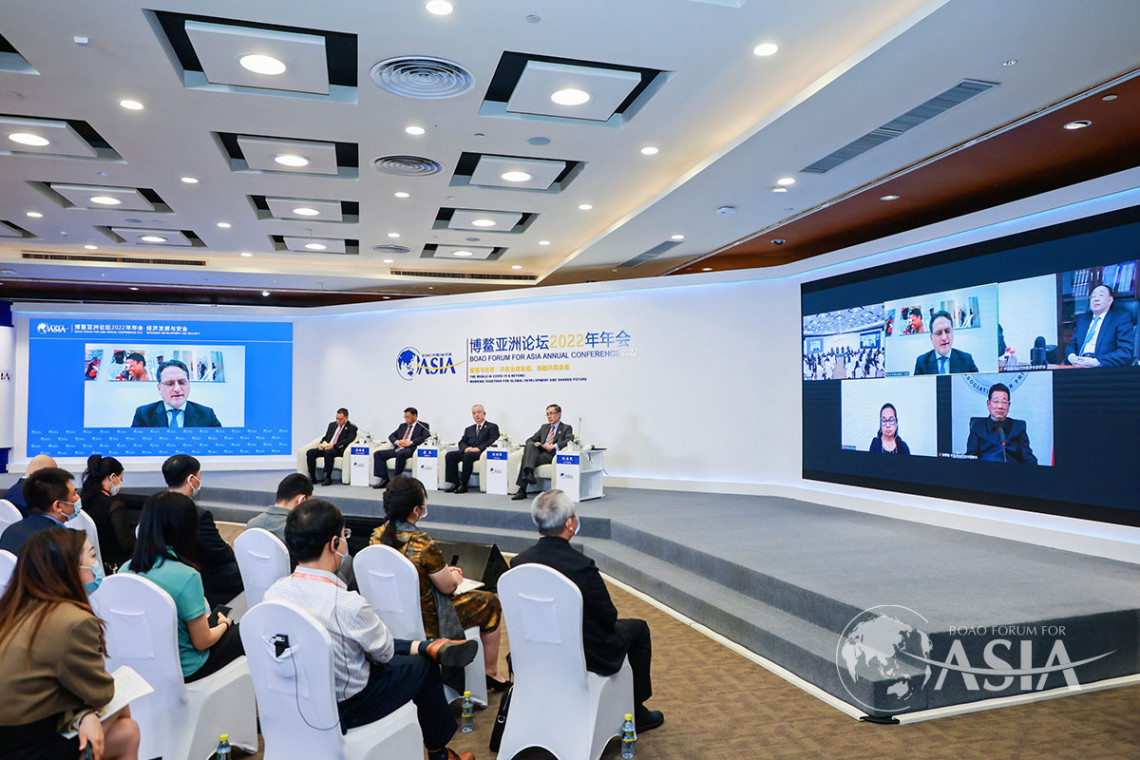
ICRC underlines humanitarian-development synergy at Boao Forum for Asia

The BFA Annual Conference 2022 was held in Hainan, China, from April 20 to 22, and was themed "The World in COVID-19 & Beyond: Working Together for Global Development and Shared Future". Pierre Krähenbühl, the personal envoy of the ICRC president to China and head of the ICRC regional delegation for East Asia, virtually participated in the sub-forum on "Economic Development and Security" held on April 22.
The panelists of the sub-forum discussed topics such as promoting inclusive development around the globe, coping with all the challenges the world's currently facing and enhancing the capacity of risk management and hazards control. The stress was on finding balance and synergy between development and security as it is critical for the future.
As an impartial and independent humanitarian organization with more than 150 years of history, the ICRC currently works in more than 100 countries in the world. We endeavour to protect the lives and dignity of victims of armed conflict and other situations of violence and to provide them with assistance.

On April 22, panelists participate virtually in the sub-forum on Economic Development and Security of BFA Annual Conference 2022. ©Boao Forum for Asia
Mr Krähenbühl emphasized that wars, armed conflict and violence are the antithesis of development. They destroy infrastructure and interrupt delivery of public services such as education, health care, water and electricity supply, resulting in fundamental reversals of development, like we see in Syria and Ukraine today. One of the main characteristics of many armed conflicts today is their protracted nature; the longer the war, the more widespread the devastation and diverse the consequences on industry, agriculture, livelihoods, etc.
"And yet, I am struck by how we deal with these armed conflicts. We behave as if wars were simply a natural part of the human condition. I disagree fundamentally with this – wars are not inevitable," said Mr Krähenbühl, adding, "These are themes that have been highlighted during the opening of the Forum and that are part of our dialogue with China."
"Humanitarian organizations can do useful work in times of crisis. We provide emergency medical aid, food and cash support, water and other crucial supplies. The long duration of conflict has forced us to learn and adapt some of our ways of working. We have learned to link humanitarian and development practices and ways to make some of our support more sustainable. We partner more actively with others in this regard," Mr Krähenbühl said.
"In Afghanistan, for example, where the security situation has stabilized to some extent, economic, social and humanitarian conditions remain grave. We have taken the step to ensure the continuity of health services by paying the salaries of 10,000 Afghan doctors and nurses in 33 hospitals in the country."
He said that one of the most striking recent developments is that populations affected by armed conflict now have to simultaneously cope with the effects of climate change and the COVID-19 pandemic.
For example, on the African continent, over 345 million people are facing food insecurity. This is the effect of four main parameters: armed conflicts that destabilize entire regions, repeated climate shocks such as severe droughts and floods, the conflict in Ukraine that is contributing to the rising food and fuel prices and the lasting social and economic consequences of the COVID-19 pandemic.
Mr Krähenbühl said this has led the ICRC to adapt the ways it works. For example, the organization has integrated the consequences of the pandemic and climate change into its response.
The ICRC is keen to learn from and integrate Chinese perspectives and experiences, for example in terms of development or poverty reduction, into its thinking.
He concluded by saying that humanitarian organizations save lives and endeavour to link humanitarian and development activities, but at the end of the day, political action is needed to bring about the end of conflicts and to recreate the basis for development and stability.
